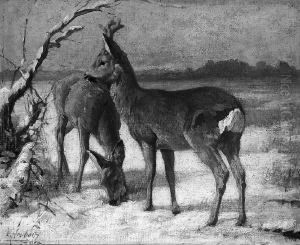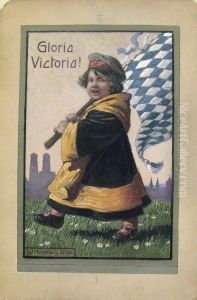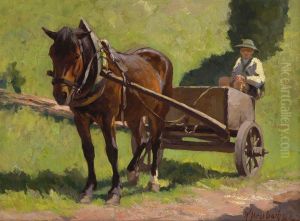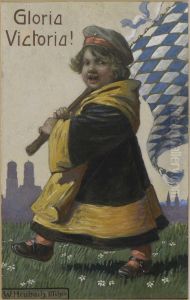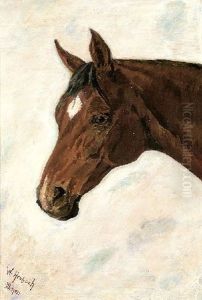Walter Heubach Paintings
Walter Heubach was a German artist known for his work as a painter, draughtsman, and illustrator. Born on August 8, 1896, in Heidelberg, Germany, he developed an early interest in art and went on to study at the Academy of Fine Arts in Karlsruhe. Heubach's artistic career was influenced by the turbulent events of the 20th century, including World War I, the interwar period, and World War II.
During the interwar period, Heubach's work reflected the eclectic styles of the time, with elements of Expressionism and New Objectivity. He was particularly skilled in portraiture, and his works often depicted individuals with a sharp sense of realism combined with a psychological depth, capturing the mood of the era.
Heubach's career was interrupted by military service during both World Wars. After World War II, he continued to work as an artist in Germany. His post-war work often carried a sense of reflection and sometimes commented on the social conditions of the time. Despite the challenges he faced throughout his life, including the changing political and social landscape of Germany, Heubach maintained a dedication to his art.
Walter Heubach passed away on July 1, 1974, in Karlsruhe, leaving behind a body of work that contributes to our understanding of German art in the first half of the 20th century. While he may not be as widely known as some of his contemporaries, his work is appreciated for its technical skill and its insightful portrayal of his subjects.
